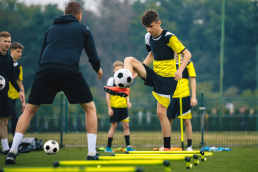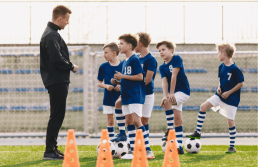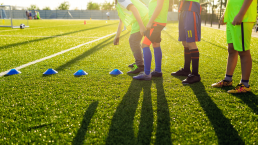Top 6 tips for a grassroots coach.
Grassroots coaching is extremely important when it comes to the development of a player and shaping their skills and techniques from the inception of their sporting career. Grassroots coaches will naturally take time to understand a player, spend time to get to know each of them, and to understand their styles before they can focus on how they can work with the players and help them grow individually. Coaches are experienced in achieving maximum coaching effectiveness with the understanding that while one technique will work for a player, it might not for another player.
No matter how experienced you are as a grassroots coach, there is always room for learning to achieve the mission of pushing yourself and your players to the next level. Here are top 6 tips to improve yourself as a grassroots coach.
- Plan your sessions wisely
Time spent with each player is crucial and planning your sessions in detail is important. Sessions have to be utilized optimally. It is important to have a structure in terms of the sessions and drills and communicate it to players. Coaches can now use simple sports tech platforms such as Koach to seamlessly plan and communicate on the session plans.
- Understand your players better
Put a conscious effort on a daily basis to understand your players individually as well as a team. Younger players have different styles and understanding what motivates them is important to have a successful session. Once you understand your players better, it will be easier to tailor training sessions to suit them more.
- Benchmark with experienced coaches
Different coaches bring different strengths and techniques to the game, and it is equally important to study coaches who are the best in the industry. There are many things to learn from coaches who even have similar levels of experience, and understand how they put in their strengths to the game. It would also be great to invite other coaches to do a few training sessions as well.
- Focus on technical development
Players who are not technically sound will invariably affect the team’s performance. Improving the technical ability of the players is one of the key goals of a coach where many use platforms to track, analyze and communicate individual player performances with players as well as their parents.
- Evaluating performance is vital
As much as you spend time evaluating individual and team performance, it is important to evaluate your coaching style and techniques. Record yourself during training sessions, watch how you communicate with players, and observe how players react to your instructions. Are you tough enough, do you communicate well and do players understand your instructions? Watching how players react to your commands is key to knowing and understanding your effectiveness as a coach.
- Having a mission for the season
Whilst there are many expectations, you can have a set of goals or a mission in place for the season. Ensure you communicate this to players and parents at the start of the season so they will support you to achieve it by the end of the season. Not all goals need to be quantifiable, it is important to have goals on overall improvement as well to finish off a successful season. Getting continuous feedback throughout the season is also of paramount importance. You can read what our CEO Tariq had to say about the importance of year-long feedback here: https://www.linkedin.com/pulse/importance-year-round-feedback-interactive-players-tariq-cassim-1c/
If your players aren’t smiling when they come off the pitch and if they seem not excited to attend the training session, you need to reevaluate your approach to the training sessions. Many play for enjoyment and to have fun so it is important not to lose sight of it. Whilst you provide a competitive training environment to facilitate their growth as players and individuals, it is very important that you make sure they have fun in the process!
How to tackle parental concerns when getting back to sports in the New Normal
With our worlds having been turned upside down during the last eighteen months, one thing is certain: people are eager to return to sports. Athletes are excited to leave the house and play ball again. Parents are relieved that their children are getting some much-needed exercise. We're all prepared, but our return to play won't be a return to normal, at least not right away.
Regardless of their level of concern, most, if not all, parents recognize that things will have to change in the future. There will be some safeguards to consider, new procedures will have to be implemented and health and safety will take precedence.
Some parents have offered their thoughts on the return to sports in the context of the new normal. The following are some of the concerns they had in mind.
The first expectation is that clubs and teams will take the situation seriously. This entails devising strategies and procedures to ensure that every participant is safe. Parents will feel more at ease knowing that their club has established clear practice and game-day protocols, as well as standards for all members to follow and a response plan in the event one amongst them tests positive for Covid.
Ideally, and it goes without saying, members should be notified if someone tests positive or has been exposed to someone who has tested positive. Let everyone know how they'll hear from you and what actions you'll take, such as how long that member will be off the field and how long it'll take for them to get back.
Secondly, while everyone's contribution is important, parents want to know that coaches and volunteers who will be on the field or on the sidelines have been thoroughly trained on the new procedures which vary from between countries, regions and states. This will almost certainly entail ensuring that members undergo temperature checks and health assessments before entering the field, as well as adhering to social distancing and masking standards that are practiced in your state region or country.
Thirdly, Parents anticipate clubs will rethink where, when, and how their children return to the field. It is typical to be concerned about competing outside of the state or even the country. For the time being it will be prudent to look for opportunities to attend local activities instead of traveling. To reduce the number of people who must be present at any given moment, schedule games throughout the day or week and spread practices among fields as much as possible. You will certainly be reducing the number of players on the field. Consider changing the pace of play and avoiding excessive physical contact or proximity, such as huddles.
Last but not the least, adapting to change is inevitable. As recommendations, rules, and criteria continue to evolve, your strategies and practices will have to change to keep up with them. Remember that no plan is flawless. What works today might not work tomorrow. The best you can do is keep an eye on what's going on in your neighborhood and listen to what your stakeholders have to say.
7 simple ways to motivate players and teams.
7 simple ways to motivate players and teams.
Coaching is not easy, but with effort and proper strategies it can be one of the most rewarding careers that anyone could ever have. Being a great coach always involves having a few tricks up your sleeve to keep players disciplined, motivated and happy. Motivation can be short lived and depends on a player’s mood, age, background. It is a process that is crucial because it can positively impact a game. Here are some tips that a great coach could use to motivate his players.
- Be a teacher
This may sound too simple since a coach will always be a teacher too. But the concept of being a teacher involves focusing on a student’s growth more than just winning. Teaching them, helping them improve, ensuring that they see that they are improving becomes a priority. Make sure they are always improving and see the results. When a coach treats a player like a student, the player and team would improve drastically. When you start teaching your players, they will learn and once they see results, they would be motivated to learn more.
- Always explain ‘why’
Explaining the ‘reason why’ is a psychologically proven trigger that makes people take action. Humans want to know why they are doing certain things on a psychological level all the time. Players might not understand why certain drills are done, and when it is tough they might dislike it and even lose motivation. It is important to explain why they are doing a certain drill and how it would help their skills and game improve.
- Always show improvement and growth
When there is a tough season, players tend to get demotivated and start to believe that nothing they do is good enough to win. This mentality can slow the game and their progress, it is important to show them how they improve on a consistent basis and show and discuss their growth with them and explain how it makes a positive impact within the team. Make sure that you give them constant feedback on their performances.
- Celebrate success in small ways
Celebrations do not always have to come after a win. Celebrations can also come after fulfilling little goals and accomplishments that have been set for players during training sessions. During tough seasons, to keep the momentum going it is important to celebrate little wins like finishing a tough drill, meeting a new goal, breaking a bad habit etc. Measure turnovers, rebounds, and celebrate improving in those areas.
- Reward hard work instantly.
Positive reinforcement is important specially if you are coaching a young team. When you reward a child for doing something good, or for going beyond what is expected of them, the tendency for the rest of the children to replicate that effort is high, and the chance of repeating it is high. Rewards do not necessarily have to be tangible; they could be in different forms such as reward ball, more playing time, hustle trophy etc.
- Measure performance.
Identify what performances are important to you and the team and how you could showcase the statistics for them to be motivated. Certain statistics might confuse players and might not be as important. Team and individual statistics, high fives, compliments, player satisfaction ratings are things that can be tracked, and presented to the team so they can compete for better performance.
- Have fun competitions!
One of the most tried and tested methods is to include competitions in daily routines. Drills and practice can get mundane and less interesting. To avoid this many coaches have mini competitions now and then for teams. Design practice sessions in a more competitive and fun manner so the players will be motivated to come for practices every day.
6 ways to become the best remote coach.
Given the current situation prevailing globally, the demand for Remote Coaching has now become stronger and more popular than ever. Here are six tips from all of us at KOACH to ensure that your coaching is at its best while overseeing your trainees both near and far.
While there is a considerable downside to remote coaching, the pros effortlessly outweigh the cons especially if the coaching is done right.
As a coach, what could be more important than a trainee being able to reach out to you wherever and however? At a time where there are multiple types of travel restrictions and social distancing measures being imposed and trainees ease of access to their respective coaches seem nearly impossible, Remote Coaching steps in to revolutionize the art of Player Management and Training.
1. Real Life Coaching Experience and Education
One of the best attributes of remote coaching is that you can still impart your in person coaching experiences to the athletes online. Following players on a one on one basis remotely over the years helps you, the coach, develop a greater understanding of the trainee. In the process you will develop a whole load of insights that you could use to identify and avoid any obstacles the trainees may encounter in their sports career.
2. Overemphasize Communication
One can be the best coach in terms of technique, however that does not guarantee you to be a complete coach. What makes a complete coach is an important factor we call “Communication”, and it is no secret that communication is the key factor in a coach’s success with a trainee. Probably the best and the most notable advantage online coaching has over “in person coaching” is the consistently always open door to get in touch with your trainees and vice-versa.
Being honest, concise, understanding and transparent with your trainee is extremely important while communicating with your trainee. A good remote training platform which enables communication makes life much easier and less complicated as you are assured of sharing simple, clear cut information among your coaching staff and trainees alike.
3. Using Technology to your advantage
Online coaching platforms enable you to create a massive library of data of your trainees. This historical data enables you to plan their development trajectory. You virtually know your trainee better than he or she does.
4. Consistent Feedback
Updating the trainees training log with an overview would ensure that each person is held accountable for the progress of their workout. Plan and allow for a discussion with a reflection at the end of each workout.
Make it a requirement for your trainee to give their respective feedback also. Be honest and give all types of feedback regardless if it is positive reinforcement or discussing what didn’t go well. This is what ultimately helps the athlete grow.
5. Make Your Presence felt
There are so many communication tools that you can get your hands on right now: Zoom, FaceTime, text, email, etc. Become as personable as you can as a remote coach. Since you manage your trainee and communicate mostly online, increase every aspect of communication and your presence online.
Remember to be seen on reputed blogs, training videos and social media to ensure you’re always “Out There”. Get your trainee to do the same by staying connected with you by sending their training videos to be analyzed and in turn send them quick and meaningful feedback on their performance.
If there is the slightest possibility to meet up with the athlete face-to-face at an event, during travel or passing through, make the extra effort to connect if and when at all keeping in mind the health guidelines set out by healthcare authorities.
6. Motivation
As a remote coach you need to constantly be a receptive coach instead of an unreceptive one. No matter what you or your trainee’s game plan is, the need for a motivational connection is of great importance.
Highlighting other trainee’s accomplishments or diving into what you’re doing in the sport—whether coaching, at the game or training helps build a close-knit community. This is a time where you can really showcase the continual support.
There are so many ways to improve upon your online coaching methods. In the end, nailing your remote coaching methods depends on having a mindset in which you prioritize effective communication, support and follow your athletes throughout their training.
6 Ways the ‘New Normal’ has Changed the World of Sports
The world is still reacting and responding to how the pandemic has twisted and turned things around, for better or for worse. While many clubs, associations and institutes have adapted to different techniques and features that have been brought into the game, many are embracing it with a lot of positivity by utilizing technology to bridge the ‘before’ and ‘after’ scenarios.
The sports industry has developed new methods to adapt to the game, evaluating the experience of a spectator is one of the areas that has to be considered as it is nothing like the feeling of cheering your favourite team standing in a crowded stand. Below are a few ways of how the ‘new normal’ has changed the game of sports.
New Training Methods
Many sports teams have explored a variety of creative options by trying different types of methods to train in-house during lockdown. Tech companies have partnered up with sports federations to bring out the best coaching techniques through apps and other platforms for players to train at home without losing focus. Another way is by introducing new exercises for different sports, to get players to train remotely to ensure they stay disciplined with their routine. It has been a difficult journey but thanks to many creative solutions across the industry, it has been successful.
Competing Virtually
Many federations have encouraged clubs and associations to start virtual challenges and competitions on social media and edutainment platforms such as Koach are ideal for such initiatives. Video conferencing, player vs player practice comparisons and challenges have become very popular this season. For the clubs which are not under lockdown, federations have been encouraging clubs and academies to carry out games and competitions with smaller team sizes to keep players engaged.
Health and Safety is Key
Many sports such as football have slowly taken to playing the game physically during the new normal but with many safety measures in place. For example in Singapore, only 4 Vs 4 games could be held for football during this phase of “restricted movements”. Hygiene has become an important element for managers and coaches this season, not just at the player level but also at the infrastructure level to ensure that the stadiums are cleaned, equipment is sanitized, shared facilities are disinfected before and after each game. For example, in football, the ball is regularly cleaned to ensure health and safety.
Virtual Cheerleaders and Spectators
Post lockdown, rules have been implemented such that only a limited number of spectators can be present to watch a game. These spectators are required to wear masks and be socially distanced at all times. The usual full house stadiums are unlikely in the foreseeable future at the least. How has technology been used proactively in this aspect you may ask. Edutainment platforms like Koach have introduced “match day score boards” on mobile for parents and fans to keep abreast of the game virtually. Koach also provides a Club with Koach Theatre, a streaming platform where all past matches, behind the scenes footage, interviews, etc could be hosted on. Bigger sports associations also stream live matches for wider audiences.
Health and Safety Advisories
The World Health Organisation (WHO) has prepared a document for sports federations with step by step instructions on how to re-open clubs safely while addressing high to low contamination risks and possible Do’s and Don'ts to adhere to. For example, players have been advised to refrain from celebrating with physical contact like hugging, or in any other form.
Fewer International Competitions
Due to traveling risks and high flight costs, international competitions have been postponed or cancelled until the pandemic abates. For some of the competitions that are still being held, to minimize risks of infection and spread, national players live in isolation or a “bubble” so training can continue safely. Players are also avoiding public gatherings and public transport for safety considerations as advised by experts.
Do you know how any other ways have changed the sports industry during the ‘new normal’? Drop us a message with your thoughts. We would love to know what you think.
Analyzing Past Performance to Strategize Future Wins.
Forbes, in one of their articles, mentioned that the analytics market for sports is expected to reach $4 billion by 2022. That is how big the demand for sports analytics will be by the end of 2022. Every professional sportsman and sports woman knows the importance of analytics in the game and its influence in sports is growing steadily. Sports analytics today is a much wider spectrum than old school metrics and game performance.
Specifically, Soccer analytics is a very important area that coaches are beginning to focus on. Its role in developing players by focusing on metrics to grow their potential is a trend that is catching on in clubs and academies the world over.
Player Analysis
The skill and engagement levels of a player can be monitored by analysing the players past performances. Apart from the sports angle, the level of enthusiasm can be measured by analysing how much time a player would take to complete their tasks and assigned engagements in comparison with the rest of the team.
A coach who has access to uploaded video footage of a particular player can analyse the footage to assess his players. This helps coaches train players and create individual action plans for continuous improvement. This is one area Koach can help with and with consistent data driven feedback coaches can help players understand their strengths and work on their weaknesses.
Pre-Match Analysis
Pre match analysis is an important area in soccer where data from recent match analysis, formations, goals scored can be used to formulate a strategy for the next upcoming match. Players’ current form including information on their injuries and medical conditions can be efficiently displayed in a dashboard for quick and easy decision making. Once the coach has the player evaluations and action plans in place, the coach can build sessions via Aktive’s session builder and plan for future matches in detail. This feature provides the coach with the options to change formations and create their starting lineup.
Post-Match Analysis
The Aktive platform provides different types of reports generated via the data collected by the coaches during the match. it provides basic information such as match attendance, player ratings, scores, used and unused substitutes, red/yellow cards collected and total minutes played by each player just to name a few. This data is also aggregated over an entire season to give the club or academy a full 360 degree view of the team.
Koach with Aktive is an Edutainment platform that allows clubs and academies conduct remote training sessions and automates the administrative aspects of running a club or academy. It is in essence a platform that has been built with user experience as its core concern to ensure players of all ages stay engaged as life-long enthusiasts of the game..
Player Engagement 101 on Koach
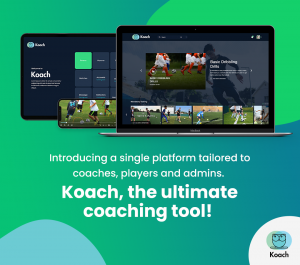

This is where an evolving platform like Koach, gives coaches an ideal platform to plan, schedule, monitor and analyze home-based training and assessments. Here is what Koach can do for you.
Schedule trainings with reminders
Koach has the ability to set training with time limits and deadlines to complete. It also gives coaches or managers the ability to compare players against each other.
Set mandatory training sessions
Our platform gives access to coaches and managers to set mandatory training by simply adding specific training video, assessments, or documents to the platform and set deadlines for them to be completed. Reminders could also be set to notify all users of their mandatory content.
Create, track and monitor assessments
Be it a coach or player, no matter whose proficiency you want to assess, the Koach platform can rapidly create assessments and insert it to specific videos or series of videos.
Choose the right type of assessment from multiple configuration options
Assessments can be delivered in three configurations: mid-video assessments, end-video assessments and standalone assessments. They can be configured in a way where the user is aware of exactly which video needs to be consumed to attempt a particular assessment.
Data driven feedback & reports to monitor players
With Koach’s dashboards and reports, the team’s progress can be easily tracked with data-driven feedback and reports. Koach is engineered to provide you with the analytics of each player’s competence to help coaches identify areas of improvement and unlock the team’s full potential.
Koach by Knod is a streaming platform that is built to facilitate remote learning. With a sleek and intuitive interface, Koach forms a stage for an on-demand learning platform for you to easily consume new content, stay updated with the latest organization information and policies, and administer assessments to ensure every team member remains relevant.
Drop in your details and we will get in touch with you to discuss Koach at the earliest.
